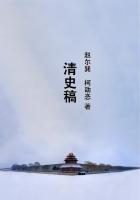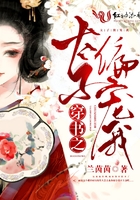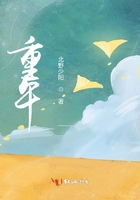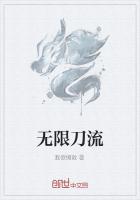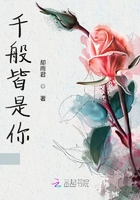As all who are learned in such matters know, the Venetian aristocracy is the first in Europe. Its /Libro d'Oro/ dates from before the Crusades, from a time when Venice, a survivor of Imperial and Christian Rome which had flung itself into the waters to escape the Barbarians, was already powerful and illustrious, and the head of the political and commercial world.
With a few rare exceptions this brilliant nobility has fallen into utter ruin. Among the gondoliers who serve the English--to whom history here reads the lesson of their future fate--there are descendants of long dead Doges whose names are older than those of sovereigns. On some bridge, as you glide past it, if you are ever in Venice, you may admire some lovely girl in rags, a poor child belonging, perhaps, to one of the most famous patrician families. When a nation of kings has fallen so low, naturally some curious characters will be met with. It is not surprising that sparks should flash out among the ashes.
These reflections, intended to justify the singularity of the persons who figure in this narrative, shall not be indulged in any longer, for there is nothing more intolerable than the stale reminiscences of those who insist on talking about Venice after so many great poets and petty travelers. The interest of the tale requires only this record of the most startling contrast in the life of man: the dignity and poverty which are conspicuous there in some of the men as they are in most of the houses.
The nobles of Venice and of Geneva, like those of Poland in former times, bore no titles. To be named Quirini, Doria, Brignole, Morosini, Sauli, Mocenigo, Fieschi, Cornaro, or Spinola, was enough for the pride of the haughtiest. But all things become corrupt. At the present day some of these families have titles.
And even at a time when the nobles of the aristocratic republics were all equal, the title of Prince was, in fact, given at Genoa to a member of the Doria family, who were sovereigns of the principality of Amalfi, and a similar title was in use at Venice, justified by ancient inheritance from Facino Cane, Prince of Varese. The Grimaldi, who assumed sovereignty, did not take possession of Monaco till much later.
The last Cane of the elder branch vanished from Venice thirty years before the fall of the Republic, condemned for various crimes more or less criminal. The branch on whom this nominal principality then devolved, the Cane Memmi, sank into poverty during the fatal period between 1796 and 1814. In the twentieth year of the present century they were represented only by a young man whose name was Emilio, and an old palace which is regarded as one of the chief ornaments of the Grand Canal. This son of Venice the Fair had for his whole fortune this useless Palazzo, and fifteen hundred francs a year derived from a country house on the Brenta, the last plot of the lands his family had formerly owned on /terra firma/, and sold to the Austrian government.
This little income spared our handsome Emilio the ignominy of accepting, as many nobles did, the indemnity of a franc a day, due to every impoverished patrician under the stipulations of the cession to Austria.
At the beginning of winter, this young gentleman was still lingering in a country house situated at the base of the Tyrolese Alps, and purchased in the previous spring by the Duchess Cataneo. The house, erected by Palladio for the Piepolo family, is a square building of the finest style of architecture. There is a stately staircase with a marble portico on each side; the vestibules are crowded with frescoes, and made light by sky-blue ceilings across which graceful figures float amid ornament rich in design, but so well proportioned that the building carries it, as a woman carries her head-dress, with an ease that charms the eye; in short, the grace and dignity that characterize the /Procuratie/ in the piazetta at Venice. Stone walls, admirably decorated, keep the rooms at a pleasantly cool temperature. Verandas outside, painted in fresco, screen off the glare. The flooring throughout is the old Venetian inlay of marbles, cut into unfading flowers.
The furniture, like that of all Italian palaces, was rich with handsome silks, judiciously employed, and valuable pictures favorably hung; some by the Genoese priest, known as /il Capucino/, several by Leonardo da Vinci, Carlo Dolci, Tintoretto, and Titian.
The shelving gardens were full of the marvels where money has been turned into rocky grottoes and patterns of shells,--the very madness of craftsmanship,--terraces laid out by the fairies, arbors of sterner aspect, where the cypress on its tall trunk, the triangular pines, and the melancholy olive mingled pleasingly with orange trees, bays, and myrtles, and clear pools in which blue or russet fishes swam. Whatever may be said in favor of the natural or English garden, these trees, pruned into parasols, and yews fantastically clipped; this luxury of art so skilfully combined with that of nature in Court dress; those cascades over marble steps where the water spreads so shyly, a filmy scarf swept aside by the wind and immediately renewed; those bronzed metal figures speechlessly inhabiting the silent grove; that lordly palace, an object in the landscape from every side, raising its light outline at the foot of the Alps,--all the living thoughts which animate the stone, the bronze, and the trees, or express themselves in garden plots,--this lavish prodigality was in perfect keeping with the loves of a duchess and a handsome youth, for they are a poem far removed from the coarse ends of brutal nature.
Any one with a soul for fantasy would have looked to see, on one of those noble flights of steps, standing by a vase with medallions in bas-relief, a negro boy swathed about the loins with scarlet stuff, and holding in one hand a parasol over the Duchess' head, and in the other the train of her long skirt, while she listened to Emilio Memmi.




